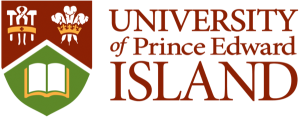Teaching With Technology: Enhancing Learning Through Digital Tools
Overview
This comprehensive micro course guides educators through strategic technology integration in higher education, moving beyond tool-focused training to emphasize pedagogically-grounded decision-making. Rather than promoting technology for its own sake, the course centers on evidence-based frameworks that help faculty evaluate when, how, and why to incorporate digital tools into their teaching practice.
Learning Philosophy
The course is built on the principle that effective educational technology amplifies excellent teaching rather than replacing it. Through established frameworks like SAMR (Substitution, Augmentation, Modification, Redefinition) and TPACK (Technological Pedagogical Content Knowledge), participants learn to make intentional technology choices that serve specific learning objectives while maintaining focus on student success and pedagogical effectiveness.
Course Structure
Module 1: Foundations of Educational Technology establishes theoretical groundwork through the SAMR and TPACK frameworks, teaching participants to distinguish between transformative technology use and mere digitization of traditional methods.
Module 2: Core Digital Teaching Tools explores four essential categories—Learning Management Systems, student engagement platforms, collaboration tools, and content creation technologies—with emphasis on pedagogical applications rather than technical features.
Module 3: Designing Technology-Enhanced Learning Activities guides participants through creating cohesive learning experiences that integrate multiple technologies while prioritizing accessibility, active learning, and authentic assessment.
Module 4: Emerging Technologies in Education examines artificial intelligence, immersive technologies, adaptive learning systems, and educational data analytics through established pedagogical lenses, ensuring innovation serves meaningful educational purposes.
Module 5: Implementation and Evaluation synthesizes previous learning into strategic implementation plans with robust evaluation frameworks, troubleshooting protocols, and sustainable professional development approaches.
Key Learning Outcomes
Participants will develop the ability to:
- Evaluate technology integration opportunities using research-based frameworks
- Design accessible, engaging learning activities that leverage multiple digital tools
- Create systematic approaches for measuring technology impact on learning outcomes
- Build sustainable professional practices for ongoing technology integration growth
- Apply ethical considerations when implementing data-driven educational technologies
Target Audience
This course is designed for higher education faculty seeking to enhance their teaching through thoughtful technology integration. It's particularly valuable for educators who want to move beyond basic tool adoption to strategic implementation that demonstrably improves student learning outcomes.
Capstone Experience
The course culminates in participants designing a technology-enhanced learning activity for their specific teaching context that addresses a real pedagogical challenge. This practical application ensures immediate relevance and provides a concrete starting point for implementation.
Duration and Format
Structured as a flexible micro course, the content can be delivered in various formats—from intensive workshops to extended professional development series—depending on institutional needs and participant preferences. The modular design allows for customization based on faculty experience levels and specific technology integration goals.
Expected Impact
Participants will emerge with both practical skills and critical evaluation capabilities that enable them to navigate the rapidly evolving educational technology landscape. More importantly, they'll develop a pedagogically-centered approach to technology integration that prioritizes student learning over technological novelty, ensuring sustainable and effective teaching enhancement.
- Teacher: Martyn Iannece
